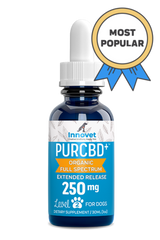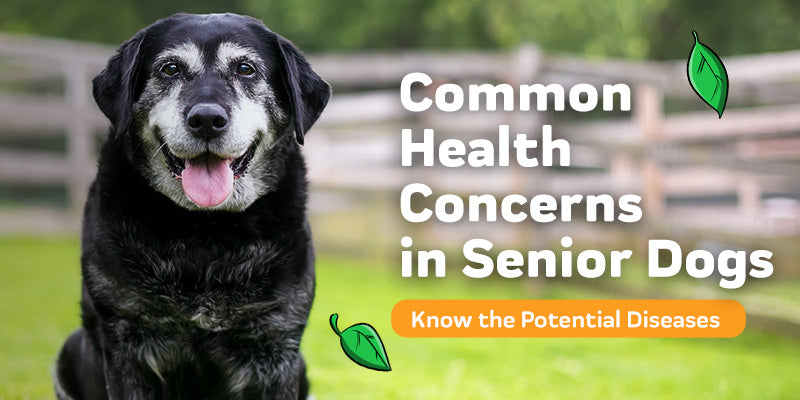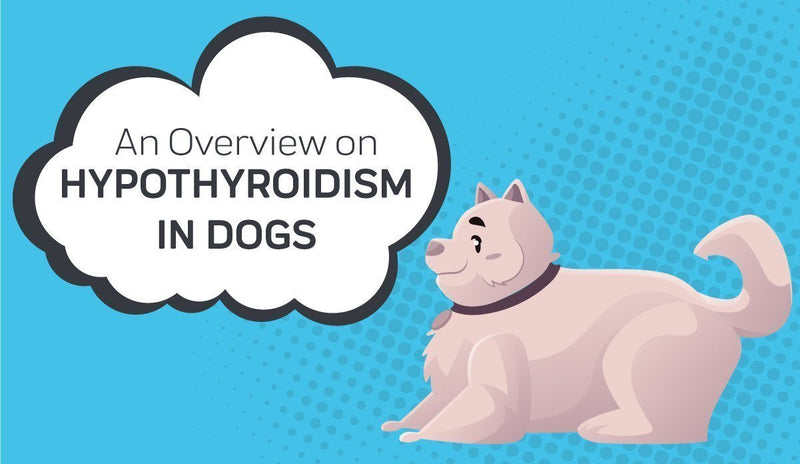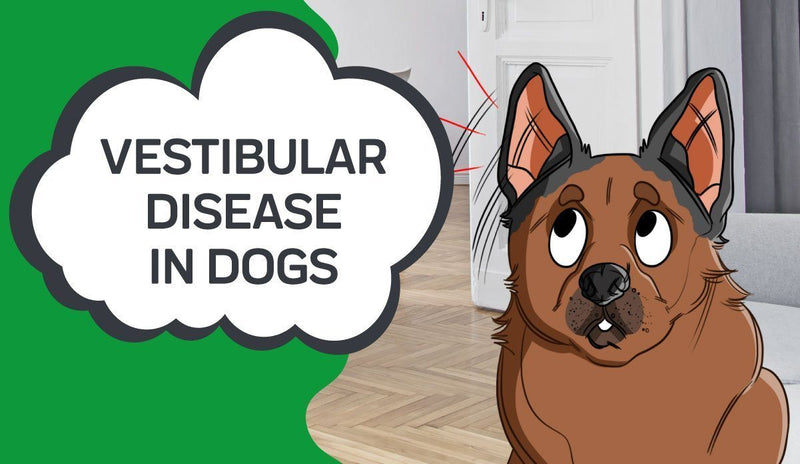
How to Know if You Have an Overweight or Obese Dog
To fix a problem, you first have to realize there is one. The most obvious way to tell whether all that dog you're loving is healthy or not is to look at photos of the breed and see if your dog has more thickness or roundness than is ideal.
For dogs that are no particular breed, this is harder.

To get more specific about it, you'll need a licensed veterinarian to not only weigh the dog but calculate their Body Condition Score, or BCS, which is like our body mass index. Generally, any dog will benefit from being a moderate size, not as thin as the thinner dog photos you see and not as large as the larger ones you see. You should not normally see the dog's ribcage, but you do want to feel it when petting them, and all dogs should have a definable waist, though this waist should be more noticeable in some dog breeds than others. Tubular dogs are not ideal.
There is an ideal body weight for the dog's size and its breed. If it is 10 - 20% heavier than the ideal, they are technically overweight. If they are 20% or more heavier than ideal, they are technically obese.
Excess weight and obesity are not an aesthetic issue, but a health-related one. Too much weight negatively impacts your dog's life. Of course, the heavier they are, the greater concern it is.
Impacts Excess Weight has on Dogs
So, what is so wrong with having a fat dog? Well, it lessens their enjoyment of life at the least and threatens their life at the most. Read the list of things excess weight can do to a dog to see both what's wrong with it and to help determine if your dog is indeed fat.

Too much doggie weight:
- limits agility and mobility when playing
- decreases energy so they don't feel like playing
- leads to arthritis
- makes joint pain worse
- can create pressure sores
- may make it difficult or impossible to groom
- may cause respiratory issues
- can cause heart disease and high blood pressure
- can cause depression because the dog can't play and exercise and generally feels bad
- leads to the development of cancer
- can lead to diabetes
Has your dog started doing less? Or become less able to do things they used to do? Do they seem depressed? If so, they may be suffering the effects of being overweight or obese.
Causes of Obesity in Dogs
To tackle doggie weight problems, you have to understand the factors that are causing them. Some of the causes may be genetic, as in, certain dog breeds are more likely to get fat, and some of it may be a mixture of lifestyle factors.
Fattest Dog Breeds
Beagles, Dachshunds, Labrador Retrievers, Spaniels, and Terriers are the most likely to put on excess weight. It isn't guaranteed that they'll get fat, and it doesn't mean other dogs aren't likely to gain weight, just that they are genetically more inclined to gain weight than the average dog.
This genetic disposition does mean owners of these dogs should take proactive measures to ensure their dogs maintain a healthy weight.
You may be able to wing it with other dog breeds and think about it only if they start getting too pudgy, but with dogs of these particular breeds, it's wise to start thinking of weight before signs of an issue appear.
The Age Factor
As dogs age, the likelihood of them gaining weight increases because of a decrease in activity. They may simply have less energy or have arthritis and it may hurt them or be impossible to be as mobile as they used to be. Less exercise is a major factor in putting on weight.
Diseases
A diagnosed, or as yet undiagnosed, disease may be the root of your dog's weight gain.
If you know your dog has hypothyroidism, insulinoma, or Cushing's disease, you should have been advised to take proactive measures to manage their weight.
If your dog has gained weight and you don't know why, or you try eliminating other factors of weight gain and their weight doesn't decrease, you should take the dog to the vet to determine if there isn't a disease at the heart of the issue. Without knowing this, it may be impossible to fix their weight problem. The diseases can also cause other problems for the dog that need to be addressed.
Heart problems, eyesight issues, and depression may limit the dog's activity and make them more prone to weight gain. You may want to be proactive with these dogs as well and consider vet evaluation if weight management proves ineffective.
Surgery
Different surgeries can make dogs more likely to gain weight. Spaying and neutering impact the dog's hormones in ways that can lessen their energy and therefore make them gain weight. Any surgery that limits their movement such as the removal of a limb or eye could indirectly lead to weight gain.

Dogs may gain weight during lengthy surgery recovery periods also. The good news with this cause of weight gain is that it will be easier to reduce when the recovery period is over. It may even magically fix itself.
Medicines
Some medications have weight gain as a side effect. If your dog is taking medications or is given a medication, check the side effect list for weight gain and be proactive about their weight. What to do about weight because of the medication can be a bit hairy. Some medications cause weight gain because they decrease appetite or decrease energy, while others actually change how the dog's body handles fat.
The vet should have an answer to how to treat such a complicated and medical matter. It may also be necessary to consider another treatment to replace the medication, if the dog's weight becomes an equal or greater health concern than the one the medication is treating.
Too Much Food
This is the most obvious factor. Maybe your doggie is just eating too much. Treats and eating human food are the easiest way for dogs to eat more calories or more fat than they can burn off, but being given too much dog food, given it too often, or eating a food too high in fat or calories could also cause the problem. You will have to judge or discuss with your veterinarian which one seems most likely with your dog.
Lack of Exercise
A dog may suffer from a lack of exercise because of another factor as mentioned above, such as older age or depression, or they may suffer a lack of exercise because their living environment doesn't offer enough play space or they aren't exercised enough.

Sometimes dog breeds need unique amounts of exercise to be healthy and if the owner is not aware of this, they may not be exercising the dog enough to maintain a healthy weight. Does one of these make sense as a cause of weight gain for your dog?
Weight Loss for Dog
First, judge the extent of the dog's weight problem. Are they just a tiny bit overweight or are they obese?
If they are only a little pudgy, you might give it some time to see if reducing their food intake throughout the day or getting more exercise returns them to a healthier weight. At this stage, it's more of a preventative thing to ensure they don't become obese or suffer long term health effects from staying overweight. You also wouldn't want their quality of life to be diminished either, so you would want to ensure it wasn't keeping them from doing things they wanted to do or causing them arthritis pain.
If the reason for the dog's weight gain is a mystery to you and/or they are obese, take them to a licensed veterinarian to discover the factor or factors causing it and develop a plan to address the issue more rapidly.
Their diet may need to be changed to a stricter amount of food or no table scraps. They may also benefit from a raw food diet.
You may need to set a designated amount of exercise time for your dog and address any causes of the dog not wanting to or being to exercise as much as is healthy for them.
CBD Oil Treatment for an Overweight or Obese Dog
CBD oil, or cannabidiol oil, can help an overweight or obese dog in many ways.
You probably just got hung up wondering what CBD oil is and why cannabidiol sounds like cannabis, so let us explain.
Cannabidiol is found in marijuana and hemp. There is much more of it in hemp, and hemp contains no THC, which is the chemical that gives marijuana its characteristic high, so most manufacturers use hemp as the source of their CBD oil.
Cannabinoids like cannabidiol impact what is called the endocannabinoid system in the dog's body. Science has discovered that there is a network, this system, of cannabinoid receptors in dog and human bodies that regulates many crucial bodily functions. External cannabinoids like CBD jumpstart the body's ability to produce its own cannabinoids, helping to maintain health.
CBD oil helps an overweight or obese dog:
- maintain a healthy, moderate appetite
- gain subtle, healthy energy
- burn fat
- boost metabolism
- improve mood so they will be happier and more mobile
- reduce inflammation that limits mobility
- alleviate pain than limits mobility
- improve cardiovascular health
- regulate blood sugar levels
As you can see from this list, CBD helps overweight and obese dogs reduce the conditions leading to weight gain, regulate functions that maintain a healthy weight, and address issues caused by excess weight. This tackles weight problems from every angle.
Using CBD
So, how do you use CBD oil to help your dog overcome obesity?
First, you need to determine the cause of the weight gain to ensure there aren't medical treatments that are required to effectively manage the weight. They might have hypothyroidism, for instance, and CBD studies have shown its ability to manage the symptoms but not to entirely treat the underlying issue.
After discovering the cause, you choose a CBD oil product, which can be a(n):

- oil tincture
- extract concentrate
- capsule
- treat
- topical
Oil tinctures are CBD oil mixed with other oils and flavors to make them convenient and tasty. They come with a dropper or sprayer so they can be added to food or put directly in the dog's mouth. Concentrates are just CBD oil, which is the most cost-effective and purest (there's only one ingredient) way to take CBD but it isn't the most enjoyable. These also can be added to food or put in the dog's mouth.
Treats are certainly the easiest way to get CBD into a dog because it's like giving them any other treat. You should use caution with this method of achieving weight loss for dogs because the treats can add calories. Try to find a CBD treat with as few calories as possible, and you could replace a treat you normally give them with a CBD treat. It is up to you and/or a licensed veterinarian to determine if the benefits outweigh the calories for your dog's individual needs.
Topicals can help an overweight or obese dog with localized arthritis pain or pressure sores. CBD has also been proven to manage the pain and inflammation in an arthritic joint, exacerbating or caused by obesity, and it can soothe a pressure sore and prevent infection.
Dosing CBD Oil
Capsules eliminate the taste aspect and some pets take capsules more readily than they eat a medication. Just sprinkle it onto their food and they are good to go.
Treats and capsules pretty much have a specific dose listed on the packaging. Dosing usually consist of giving a different number of treats or capsules depending on the size of the dog.
Oils and concentrates allow for variable, exact doses. You can tweak these accordingly to find the dose that works best for your pet. This may be particularly important for puppies, senior dogs, or those in very poor health.
Whatever dose you give your dog should not exceed 1 mg per 10 lbs. of dog per day. Start on the lower end, like 0.05 mg per 10 lbs. of dog and work up to what helps your dog.
You can ask a licensed veterinarian for advice on dosing CBD oil as the exact dosage varies by the age, weight, and health of the dog. There will still likely be some trial and error, but a vet can give you the best starting place for helping your overweight or obese dog.
Purchasing CBD Oil
There are some things you should know to make the wisest CBD oil purchase. You don't want to take chances with your dog.
Full spectrum versus CBD isolate
These two kinds of CBD oil offer different benefits. CBD isolate is just CBD, while full-spectrum also contains other cannabinoids, nutrients, and terpenes from the hemp plant that add more nutrition and potentially other health benefits. Most people choose full-spectrum CBD oil, but some people find that CBD isolate works better for them.
The science is still so new regarding CBD and cannabinoids that determining which one works for your dog is just a trial and error thing. Simply pick which one you feel the best about and try it, then try the other if the first doesn't provide the results you need.
Extraction Method
Not all extraction methods are created equal, so you should look for a CBD oil manufacturer who uses the CO2 extraction method. It is the safest and purest option.
Source
Discover where the CBD oil was grown. All reputable manufacturers should say on their website where they get their hemp from. It doesn't matter whether they grew it themselves or sourced it from someone else. Both of those are fine, as long as the country it is grown in regulates hemp satisfactorily.
Third-party Testing
Some "people" who sell "CBD oil" are not providing what they say they're providing. There may be too little CBD in the oil, or the product may not even contain CBD oil! That is why reputable companies show you third-party lab results to prove what they say is in their products is really in there.
Ingredients
The fewer ingredients the better. Ensure any CBD oil product you buy for your overweight or obese dog contains only ingredients that are necessary and safe. Natural and even organic ingredients are ideal.
Innovations from Innovet
Innovet offers a range of CBD oil products matching and/or exceeding the suggestions above. We do this to help pets with hard-to-treat ailments, and we realize that this task requires constant innovation to meet the needs of all dogs for whom traditional treatments are too harsh or simply don't work. If you discover your overweight or obese dog needs something current CBD oil products don't provide, let us know so we can see if we can't create a product to help your dog.
Sources:
Role of Cannabinoids in ObesityCannabinoids in Health and Disease
CBD For Pain and Inflammation
CBD For Cardiovascular Health
Approved by:
Dr. Sara Ochoa
Doctor of Veterinary Medicine, St. Georges University

Sara Redding Ochoa, DVM was raised in north Louisiana. She graduated from LA Tech in 2011 with a degree in animal science. She then moved to Grenada West Indies for veterinary school. She completed her clinical year at Louisiana State University and graduated in 2015 from St. George’s University. Since veterinary school, she has been working at a small animal and exotic veterinary clinic in east Texas, where she has experience treating all species that walk in the hospital. In her free time, she likes to travel with her husband Greg, bake yummy desserts and spend time with her 4-legged fur kids, a dog Ruby, a cat Oliver James “OJ”, a rabbit BamBam and a tortoise MonkeyMan.
Thanks for stopping by!
P.S. We Love You!
Sincerely,
The Innovet Team
Please do not ask for emergency or specific medical questions about your pets in the comments. Innovet Pet Products is unable to provide you with specific medical advice or counseling. A detailed physical exam, patient history, and an established veterinarian are required to provide specific medical advice. If you are worried that your pet requires emergency attention or if you have specific medical questions related to your pet’s current or chronic health conditions, please contact or visit your local/preferred veterinarian, an animal-specific poison control hotline, or your local emergency veterinary care center.
Please share your experiences and stories, your opinions and feedback about this blog, or what you've learned that you'd like to share with others.




















